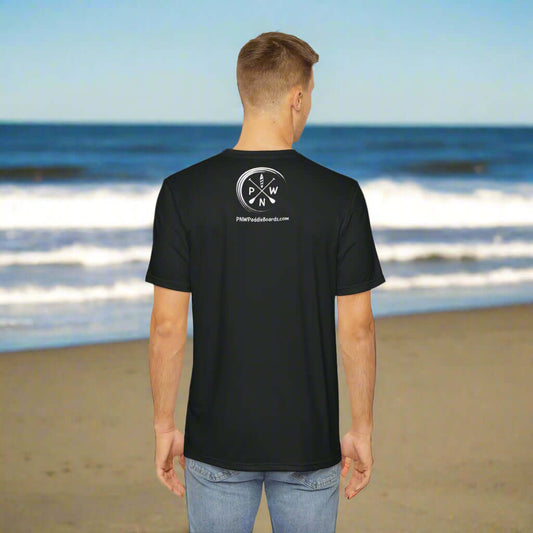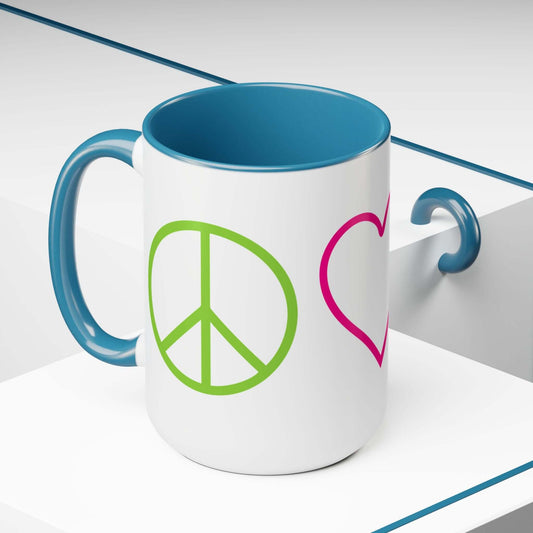
Ride the Waves: Paddleboarding's Impact on Mental Health
Frequently Asked Questions
-
How is paddleboarding related to better mental health?
The feeling of being connected to nature while paddling, combined with the physical benefits of the sport, makes paddleboarding a powerful tool for mindfulness, stress reduction, and mood enhancement. -
What are the physical benefits of paddleboarding for mental health?
Paddleboarding triggers the release of endorphins, which boost mood, reduce stress and anxiety, and improve cognitive function, ultimately contributing to overall mental wellness. -
How does paddleboarding help build social connections?
Through shared experiences and friendships, paddleboarding fosters emotional support and enhances social well-being. -
What role does nature play in the healing effects of paddleboarding?
Being out on the water exposes you to natural light and soothing sounds, both of which are known to reduce stress and promote relaxation. -
Is paddleboarding accessible to everyone?
Paddleboarding is a safe and accessible activity for most people, regardless of age or fitness level, making it a refreshing and therapeutic option for self-discovery and exercise.
Paddleboarding: More Than Just a Sport
Paddleboarding is not just a thrilling water activity—it’s an effective way to boost mental well-being. Research shows that stand-up paddleboarding enhances cognitive function and promotes mental resilience. Whether you're a seasoned paddler or a beginner, the therapeutic benefits of paddleboarding can be life-changing. Let’s explore how incorporating this activity into your lifestyle can be the rejuvenating escape you need.
The Therapeutic Connection with Water
Water has long been associated with tranquility and healing. The rhythmic motion of paddling acts as a natural form of meditation, helping individuals focus on the present moment and disconnect from daily stress. When you stand on a paddleboard and glide across the water, you enter a meditative state, allowing your worries to drift away like leaves on a stream.
Mindfulness Through Movement
Paddleboarding encourages mindfulness, a practice increasingly recognized for its mental health benefits. The activity engages the entire body, requiring focus, coordination, and balance. This combination of physical movement and mental awareness helps clear the mind, much like yoga.
Here’s how paddleboarding enhances mindfulness:
- Focus on Technique: Each paddle stroke requires attention to detail, keeping you engaged in the present moment.
- Connection with Nature: Spending time outdoors reduces stress and promotes well-being.
- Breathing in Sync: Coordinating your breath with each paddle stroke creates a calming rhythm, enhancing relaxation.
Physical Fitness as a Path to Mental Clarity
Engaging in physical activities like paddleboarding can significantly improve mental health. Exercise triggers the release of endorphins—commonly known as “feel-good” hormones.
Improved Mood and Reduced Stress
When you paddleboard, your body experiences an endorphin rush, leading to an improved mood. The combination of physical exertion and a peaceful environment helps alleviate stress and anxiety, making it an excellent activity for those dealing with mental health challenges.
Enhanced Cognitive Function
Studies suggest that regular physical activity, such as paddling, improves cognitive function. The fitness industry increasingly recognizes the connection between movement and mental clarity, leading to better decision-making and problem-solving skills.
Building Community and Connection
Paddleboarding fosters social connections, which play a crucial role in mental health. Whether you join a paddleboarding group, take a class, or participate in a local event, being part of a community can significantly enhance your well-being.
Shared Experiences
Engaging in paddleboarding with others strengthens friendships and provides emotional support. Encouragement from fellow paddlers can lift your spirits and foster a sense of belonging.
Therapeutic Outings
Joining a paddleboarding group or class creates opportunities to meet like-minded people. These interactions can lead to lasting friendships that contribute to emotional resilience.

The Role of Nature in Healing
The great outdoors is a natural healer, and being on the water enhances its therapeutic effects. Immersing yourself in nature’s beauty can be profoundly calming.
Exposure to Natural Light
Spending time outside while paddleboarding increases exposure to sunlight, which regulates sleep cycles and improves mood by boosting serotonin levels.
The Soothing Sound of Water
The gentle sound of water lapping against the board creates a calming atmosphere. Research shows that natural sounds reduce stress and promote relaxation.
Accessible and Fun
Paddleboarding is an inclusive activity suitable for most people, regardless of age or fitness level. The welcoming environment allows individuals to enjoy personal exploration while staying active.
Simple to Get Started
Unlike some sports that require intensive training, paddleboarding is relatively easy to pick up. Many people find that after just a few sessions, they feel confident in their paddling skills, boosting self-esteem and personal satisfaction.
Combining Paddleboarding with Other Activities
Paddleboarding offers the flexibility to integrate with other activities, such as yoga or fishing, for a holistic wellness experience. For example, stand-up paddleboard yoga enhances balance and flexibility while promoting relaxation.
Finding Your Balance
Approach paddleboarding as a way to enhance your well-being rather than a competition. Focusing on personal progress rather than comparison can make the experience more fulfilling.
Setting Goals and Celebrating Progress
Setting small, achievable goals can keep you motivated. Whether it’s mastering a new paddling technique or exploring a new waterway, every milestone deserves recognition. Celebrating these achievements reinforces a positive mindset and encourages continued growth.
Conclusion: Discover Your Inner Calm
The benefits of paddleboarding extend beyond physical fitness—it’s a powerful tool for mental well-being. By fostering mindfulness, encouraging social connections, and immersing yourself in nature, paddleboarding provides a holistic approach to mental health.
If you’re looking for a fresh way to boost your mental well-being, grab a paddleboard, hit the water, and experience the calming, restorative effects it offers. Ride the waves of tranquility and embrace the transformation paddleboarding can bring to your life. It’s not just a sport—it’s a path to mental clarity, emotional resilience, and a deeper connection with the world around you.


















































